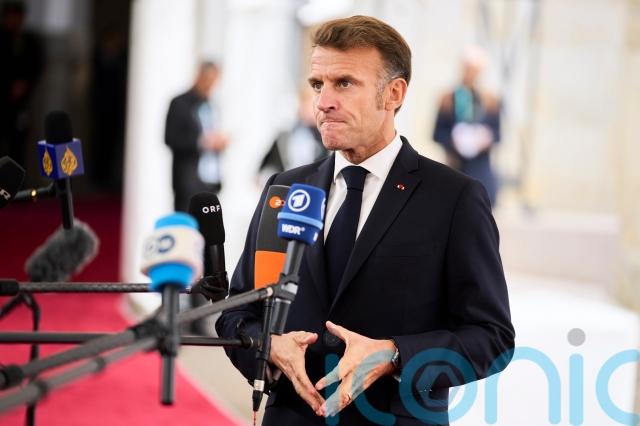
Russia is waging a “targeted grey-zone campaign” against Europe, including airspace violations, sabotage and cyber attacks that will only escalate if the Kremlin is not challenged, the European Union’s top official has warned.
European Commission President Ursula von der Leyen said that in just two weeks, fighter jets had breached Estonia’s airspace, while drones overflew military bases and critical infrastructure sites in Belgium, Denmark, Germany, Poland and Romania.
“Europe must respond. We must investigate every incident, and we must not shy away from attributing responsibility, because every square centimetre of our territory must be protected and safe,” Ms von der Leyen told EU politicians in Strasbourg, France.
Make no mistake.
The recent incursions in our skies are part of a pattern of growing threats.
It’s time to call it by its name.This is hybrid warfare.
Europe must get the capacity to respond and protect our skies.
Work has begun ↓ https://t.co/dbs5H2NNaE
— Ursula von der Leyen (@vonderleyen) October 8, 2025
“If we hesitate to act, the grey zone will only expand,” she said.
The EU’s executive branch, under Ms von der Leyen’s guidance, is preparing a plan for Europe to be ready to confront such challenges by 2030.
EU officials believe that Russia could be capable of launching an attack on another European country within three to five years.
The plan includes the development of a “drone wall” of high-tech systems linked to equipment that can detect, track and destroy drones, as well as strike their operating systems or pilots on the ground.
In two weeks, Ms von der Leyen will submit a “road map” for bolstering Europe’s defences by the end of the decade to the 27-nation bloc’s heads of state and governments for their approval.
Ms von der Leyen said that it was simply not affordable for European countries to continue to scramble the latest-generation fighter jets to counter relatively cheap drones, as happened when several of them entered Polish airspace a month ago.
“This is absolutely not sustainable. We need an anti-drone system that is affordable and fit for purpose. For swift detection, swift interception, and when needed, swift neutralisation,” she said, adding that Europe had much to learn in this from Ukraine.
The commission believes that the best way to encourage European countries to invest more in defence is to ensure that it creates jobs and is good for business in Europe. It insists that at least 65% of any project funded with EU money should be based on the continent.
In recent years, the member nations have placed about two-thirds of their orders with US defence companies.

“Most investment goes outside Europe. In other words, these are jobs outside Europe. This is absolutely not sustainable,” Ms von der Leyen said.
“This is European money and we want to see a return on this investment in jobs here in Europe.”
At a summit in Copenhagen last week, the position of some EU leaders towards the drone incidents, acts of sabotage, cyber attacks and sanction-busting appeared to have hardened. Denmark has not directly attributed a series of drone flights over the country in recent weeks to Russia.
French President Emmanuel Macron said that Europe must take a more aggressive approach with Russia by shooting down drones that enter European airspace and boarding shadow fleet ships illicitly transporting oil to deprive Moscow of war revenue.
Subscribe or register today to discover more from DonegalLive.ie
Buy the e-paper of the Donegal Democrat, Donegal People's Press, Donegal Post and Inish Times here for instant access to Donegal's premier news titles.
Keep up with the latest news from Donegal with our daily newsletter featuring the most important stories of the day delivered to your inbox every evening at 5pm.